Summing up Digital Impact and Networking Event
Two intense days are over. DINE brought us together to talk about digital transformation and development from several perspectives. What will we take with us beyond the event?
Thank you! Gracias! Asante! សូមអរគុណ! Weebale! Tack!
The initial feeling, beyond the great relief that the end of an event entails, is how grateful we are. Grateful to have such great partners doing important work, who are willing to share the insights they have gathered from it so generously and to formulate their thoughts on digital impact in such an eloquent manner. We are very lucky indeed.
It is of course very difficult to sum up two very intense days in a few paragraphs but here is an attempt to collect some of the takeaways from DINE. If you wish to revisit some of it – or take a look at panels or presentations you couid not join on the very day, the platform remains open until April 24. You can access it through the same link sent to you before the conference. Or you can register to get access to the materials using this link.
Here are some of our takeaways from DINE. There are certainly many more and we are certain that there will be opportunities to revisit the conversations we had during the event. Let us keep discussing digital transformation and how we use it in our efforts to make the world slightly better for everyone. We need to keep the discussion going to ensure we build societies, systems and digital solutions that are reslilient, inclusive, sustainable and collaborative. By discussing what that entails and to be open about the challenges to acheive this we stand a greater chance of getting there.
There is no either/or situation
Even the most basic work, such as small scale farming (e.g. pigs or chicken rearing) benefit from access to digital information, digital money transfer, connection to each other and other links in the food chain
Open public data can prevent misinformation
Access to open data from public offices could reduce the reliance on unreliable information available from google and social media. So it is important that reliable data is made available.
It is not about the latest technology
It is about relevant solutions. We need to see beyond what everyone is exicited about right now. Look at what problem we are addressing and for whom. And include their views on it when determining what is needed.
Some data on our speakers and moderators
DINE would not have been anything at all without the hard work of all the speakers and moderators. SPIDER’s aim was to have a diverse programme in as many ways as we could think of. Let us have a look at some numbers to see if we succeeded.
Gender
- Male speakers 53%
- Female speakers 47%
Continent
- Africa 50%
- Asia 10%
- Europe 22.5%
- North America 5%
- Oceania 2.5%
- South America 10%
Type of organisation
- Academia 32.5%
- Civil Society Organisation 40%
- Donor 5%
- Ministry 2.5%
- Intergovernmental Organisation 5%
- Regulatory Organisation 15%
All sessions were recorded and are still available on the platform. We encourage you to revisit DINE to access some of the great discussions and presentations again – or new ones that you didn’t have time to see.
The platform is open until 24 April. If you weren’t registered for DINE it is also possible to register now to get access.
